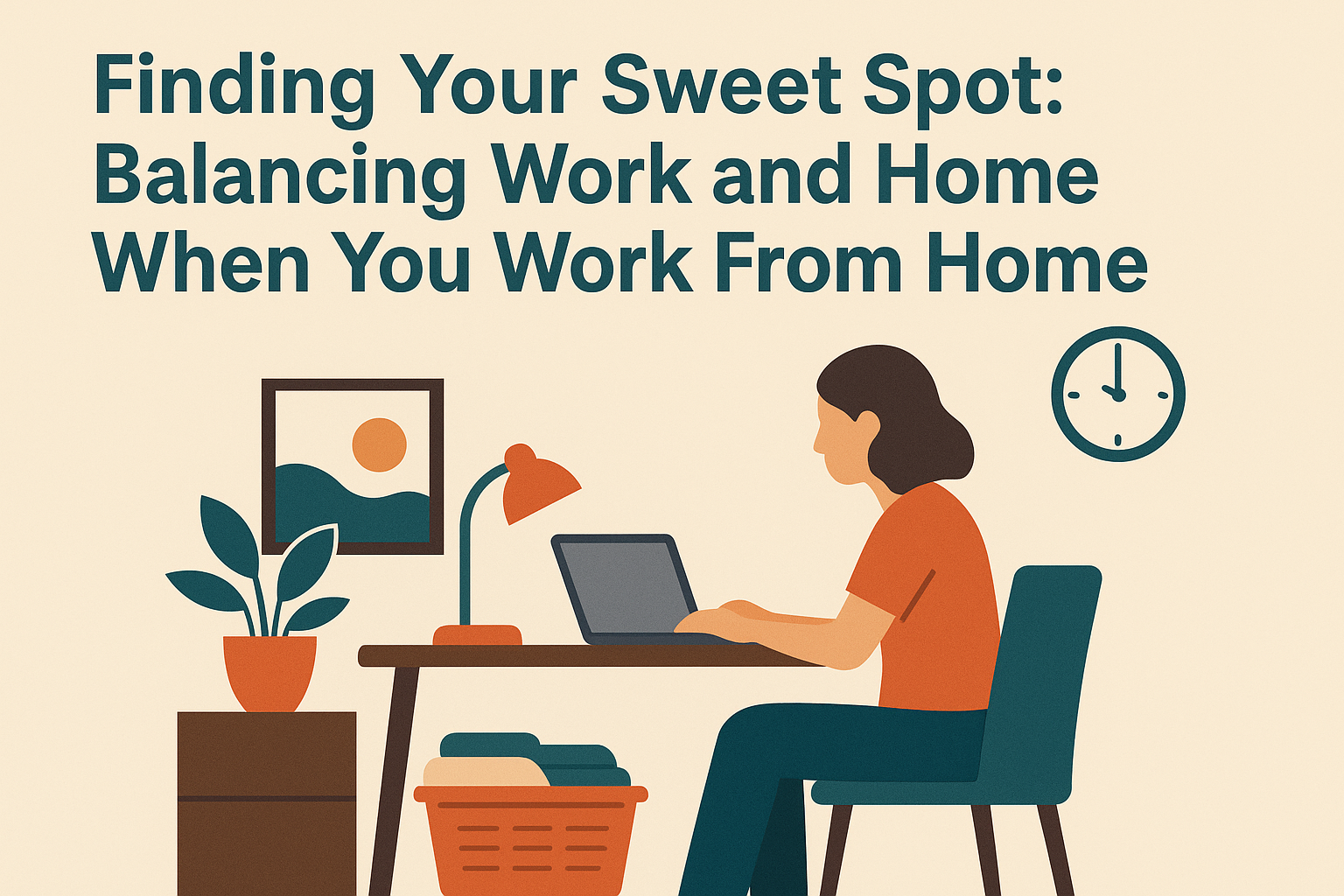Working from home has become the new normal for many solopreneurs and small business owners. At first, the idea feels like a dream: no commute, no office distractions, and full control over your schedule. Yet, in reality, working where you live introduces new challenges—chief among them guilt and distraction.
The guilt often comes in two flavors:
1. Guilt for not working enough.
2. Guilt for not tending to your home.
You may start the morning ready to tackle a big project, only to notice the laundry basket. Or you may stay glued to your desk for hours, then feel guilty when the dishes pile up or you’ve missed an afternoon with your family. The constant tug-of-war drains energy and makes it harder to focus.
The solution isn’t about ignoring one side of your life. It’s about finding the sweet spot where work and home coexist without one sabotaging the other. Here are some strategies that help:
1. Schedule both business and home tasks.
When you block time on your calendar for household responsibilities, you remove them from the “background noise” in your head. Knowing the laundry has its own time later makes it easier to stay in work mode now. I schedule my morning ritual, including going for a walk with my dog Lucy.
2. Use micro-transitions
Small rituals mark the shift between roles. Lighting a candle, brewing tea, or writing down your top three tasks can signal the start of work. Closing your laptop, jotting tomorrow’s priorities, or taking a quick walk can close your workday. These transitions help your brain shift gears and prevent guilt from following you around.
3. Reframe productivity.
Working from home doesn’t mean working nonstop. Progress matters more than hours logged. Three hours of focused work often create more impact than eight hours of half-distracted multitasking. Redefining productivity this way helps release guilt.
4. Redefine what “balance” means.
Balance isn’t a perfect 50/50 split every single day. Some days tip toward business deadlines, others toward home needs. Over the course of a week, however, the scales can even out. Giving yourself permission to ebb and flow prevents overwhelm.
The real goal is intentionality.
When you intentionally choose to be in work mode, you can give your business your best attention. When you intentionally shift into home mode, you can be fully present without the shadow of unfinished work.
Your sweet spot is unique to you. It may look different than it does for a colleague, a friend, or a family member. The important part is experimenting until you find the rhythm that allows both your home and your business to thrive — without guilt pulling you in two directions.
Where do you need to draw clearer lines? Start with one small change this week and notice the difference.
Feeling overwhelmed by “all the things” in your business, download our “Overcome Overwhelm” e-book here.
